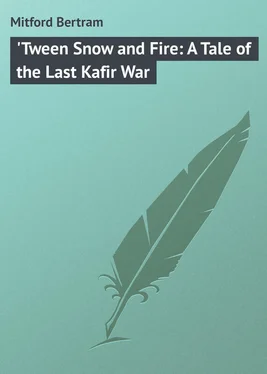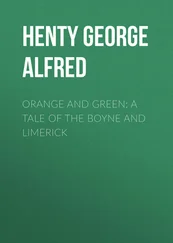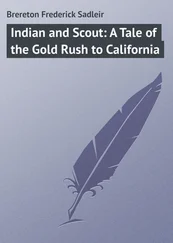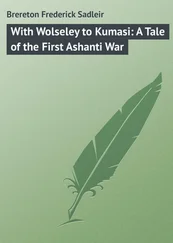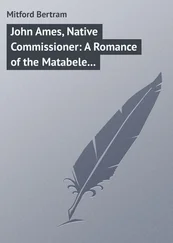Bertram Mitford - 'Tween Snow and Fire - A Tale of the Last Kafir War
Здесь есть возможность читать онлайн «Bertram Mitford - 'Tween Snow and Fire - A Tale of the Last Kafir War» — ознакомительный отрывок электронной книги совершенно бесплатно, а после прочтения отрывка купить полную версию. В некоторых случаях можно слушать аудио, скачать через торрент в формате fb2 и присутствует краткое содержание. Издательство: Иностранный паблик, Жанр: foreign_prose, на английском языке. Описание произведения, (предисловие) а так же отзывы посетителей доступны на портале библиотеки ЛибКат.
- Название:'Tween Snow and Fire: A Tale of the Last Kafir War
- Автор:
- Издательство:Иностранный паблик
- Жанр:
- Год:неизвестен
- ISBN:нет данных
- Рейтинг книги:5 / 5. Голосов: 1
-
Избранное:Добавить в избранное
- Отзывы:
-
Ваша оценка:
- 100
- 1
- 2
- 3
- 4
- 5
'Tween Snow and Fire: A Tale of the Last Kafir War: краткое содержание, описание и аннотация
Предлагаем к чтению аннотацию, описание, краткое содержание или предисловие (зависит от того, что написал сам автор книги «'Tween Snow and Fire: A Tale of the Last Kafir War»). Если вы не нашли необходимую информацию о книге — напишите в комментариях, мы постараемся отыскать её.
'Tween Snow and Fire: A Tale of the Last Kafir War — читать онлайн ознакомительный отрывок
Ниже представлен текст книги, разбитый по страницам. Система сохранения места последней прочитанной страницы, позволяет с удобством читать онлайн бесплатно книгу «'Tween Snow and Fire: A Tale of the Last Kafir War», без необходимости каждый раз заново искать на чём Вы остановились. Поставьте закладку, и сможете в любой момент перейти на страницу, на которой закончили чтение.
Интервал:
Закладка:
Then ensues a wild and stirring scene. Their great horns lowered, the infuriated animals course madly through the village, each beset by a crowd of armed savages whose dark, agile forms, avoiding the fierce impetus of their charge, may be seen to spring alongside, plying the deadly assegai. One turns suddenly and heads straight for its pursuers, bellowing hideously. Like magic the crowd parts, there is a whizz of assegais in the air, and the poor beast crashes earthward, bristling with quivering assegai hafts, as a pin cushion with pins. Yelling, whistling like fiends, in their uncontrollable excitement, the savages dart in and out among the fleeing beasts, and the red firelight gleams upon assegai points and rolling eyeballs, and the air rings with the frenzied bellowing of the pursued, and the wild shouts of the pursuers.
But it cannot last long. Soon the mad fury of the chase gives way to the nauseous accompaniments of a slaughter house on a large scale. In an incredibly short space of time, each of the bullocks is reduced to a disjointed heap of flesh and bones. Men, staggering beneath huge slabs of quivering meat, make their way to the fires, leaving the dogs to snarl and quarrel over an abundant repast of steaming offal.
The great joints frizzle and sputter over the red coals. Squatted around, a hungry gleam in their eyes, the Kafirs impatiently watch each roasting morsel. Then, hardly waiting until it is warmed through, they drag the meat from the fire. Assegais are plied, and soon the huge joints are reduced to strips of half-raw flesh, and the champing of hundreds of pairs of jaws around each red blaze takes the place of the deep bass hum of conversation, as the savages throw all their energies into the assimilation of their unwonted meal. It is like a cannibal feast – the smoky flare of the great fires – the mighty slabs of red flesh – the fierce, dark figures seated around – the gleam of weapons in the firelight.
(The unwonted meal. In former days, meat was very sparingly eaten among the Amaxosa races, milk and mealies being the staple articles of diet. When employed on such a scale as above described, it had a curiously stimulating effect upon a people habitually almost vegetarians. Hence it was looked upon as a preparation for war.)
At length even the very bones are picked clean, and thrown over the feasters’ shoulders to the dogs. Then voices are raised and once more the kraal becomes a scene of wild and excited stir. Roused by a copious indulgence in an unwonted stimulant, the Kafirs leap to their feet. Weapons are brandished, and the firelight glows upon assegai points and rolling eyeballs. A wild war-song rises upon the air; then falling into circular formation, the whole gathering of excited warriors join in, beating time with their feet – clashing the hefts of their weapons together. The weird rhythm is led off in a high, wailing key by a kind of choragus , then taken up by the rest, rising louder and louder, and the thunder of hundreds of pairs of feet keeping regular time, make the very earth itself tremble, and the quivering rattle of assegai hafts is echoed back from the dark, brooding hills, and the volume of the fierce and threatening song, with its final chorus of “Ha – ha – ha!” becomes as the mad roaring of a legion of wild beasts, ravaging for blood. Worked up to a degree of incontrollable excitement, the savages foam at the lips and their eyeballs seem to start from the sockets, as turning to each other they go through the pantomime of encountering and slaying an imaginary foe; and even in the background a number of women have formed up behind the dancing warriors and with more than all the barbarity of the latter are playing at beating out the brains of the wounded with knob-kerries. The roar and rattle of the hideous performance goes up to the heavens, cleaving the solemn silence of the sweet African night. The leaping, bounding, perspiring shapes, look truly devilish in the red firelight. The excitement of the fierce savages seems to have reached a pitch little short of downright frenzy. Yet it shows no signs of abating. For they have eaten meat .
Chapter Six.
Hlangani, The Herald
Suddenly, as if by magic, the wild war-dance ceased, and the fierce, murderous rhythm was reduced to silence. Sinking down in a half-sitting posture, quivering with suppressed excitement, their dark forms bent forward like those of so many crouching leopards, their eyeballs rolling in the lurid glow, the Kafirs rested eagerly, awaiting what was to follow.
A group of chiefs advanced within the circle of light. A little in front of these, prominent among them by reason of his towering stature and herculean build, was a warrior of savage and awe-inspiring aspect. His countenance bore an evil, scowling sneer, which looked habitual, and his eyes glowed like live coals. He wore a headdress of monkey skins, above which waved a tuft of plumes from the tail of the blue crane. His body was nearly naked, and his muscular limbs, red with ochre, were decorated with fringes of cows’ tails and tufts of flowing hair. On his left arm, above the elbow, he wore a thick; square armlet of solid ivory, and in his hand he carried a large, broad-bladed assegai. One shoulder was swathed in a rude bandage, the latter nearly concealed by fantastic hair adornments.
A hum of suppressed eagerness went round the crowd of excited barbarians as this man stood forth in their midst. It subsided into a silence that might be felt as he spoke:
“I am Hlangani, the son of Ngcesiba, the Herald of the Great Chief Sarili (Or Kreli), the son of Hintza, of the House of Gcaléka. Hear my word, for it is the word of Sarili, the Great Chief – the chief paramount of all the children of Xosa.
“This is the word of the Great Chief to his children of the House of Ngqika (Or Gaika). Lo, the time has come when the Amanglézi (English) seek a quarrel with us. We can no longer live side by side, say they. There is no room for the Ama-Gcaléka in the land they have hitherto dwelt in. They must go.
“So they have located our dogs, the cowardly Amafengu (Fingoes), our slaves and our dogs, on the next land to ours, that we may have a continual plague to scourge us, that our sides may be wrung with the pest of these stinging flies, that our name may be spat upon and laughed at by those who were our own dogs. Thus would these English provoke us to quarrel.
“Who were these Amafengu? Were they not our dogs and our slaves? Who are they now? Still dogs – but not our dogs. Who will they be shortly? Not our dogs – not our slaves – but – our masters! Our masters!” roared the fierce savage, shaking the broad assegai which he held, until it quivered like a band of flame in the red firelight. “The sons of Gcaléka will be the slaves of their former slaves – the dogs of their former dogs. Not the sons of Gcaléka only, but all the children of Xosa. Not the House of Gcaléka only, but the House of Ngqika. Who is doing this? The Amanglezi! Who would tread upon the necks of our chiefs and place the fetters of their lying and hypocritical creeds upon the limbs of our young men till the latter are turned into slaves and drunkards? The Amanglezi! Who would stop the mouths of our amapakati (Councillors) and drown the collective wisdom of our nation in floods of fire-water? The Amanglezi. Are we men – I say? Are we men?”
A low suppressed roar ran through the circle of fierce and excitable barbarians as the orator paused. Again sounded the ominous rattle of assegai hafts. It needed all the self-control of their habitually self-contained race to restrain them from breaking forth anew into their frenzied war-dance. But a wave of the speaker’s hand availed to quell the rising tumult and he continued:
“This is the ‘word’ of the rulers of the Amanglézi. The time has come when the Amaxosa races must be subdued. They are growing too numerous. They are waxing too strong. Their power must be broken. We must begin by breaking up the influence of the chiefs. We must put down chieftainship altogether. Hear ye this, ye sons of Ngqika? Hear you this, O Matanzima, warrior son of Saudili, the Great Chief of the House of Ngqika? Hear you this, O Nteya — pakati of the race of Ngqika? Hear you this, O Nxabahlana, of the House of the Great Chief, you who have led our bands to war before the very birth of many of the young men I see before me? Hear ye this, Maquades and Mpanhla and Sivuléle, and you, Panganisi and Untíwa, of the House of Seyolo of the House of Hlambi, golden mouthed in council – in the battle-field flames of consuming fire? Hear ye this, all ye gathered here before me this night – tried warriors, and young men who have never seen war. The children of Xosa are growing too strong. They must be subdued. The power of their chiefs must be broken. Such is the word of the rulers of the Amanglezi.”
Читать дальшеИнтервал:
Закладка:
Похожие книги на «'Tween Snow and Fire: A Tale of the Last Kafir War»
Представляем Вашему вниманию похожие книги на «'Tween Snow and Fire: A Tale of the Last Kafir War» списком для выбора. Мы отобрали схожую по названию и смыслу литературу в надежде предоставить читателям больше вариантов отыскать новые, интересные, ещё непрочитанные произведения.
Обсуждение, отзывы о книге «'Tween Snow and Fire: A Tale of the Last Kafir War» и просто собственные мнения читателей. Оставьте ваши комментарии, напишите, что Вы думаете о произведении, его смысле или главных героях. Укажите что конкретно понравилось, а что нет, и почему Вы так считаете.
